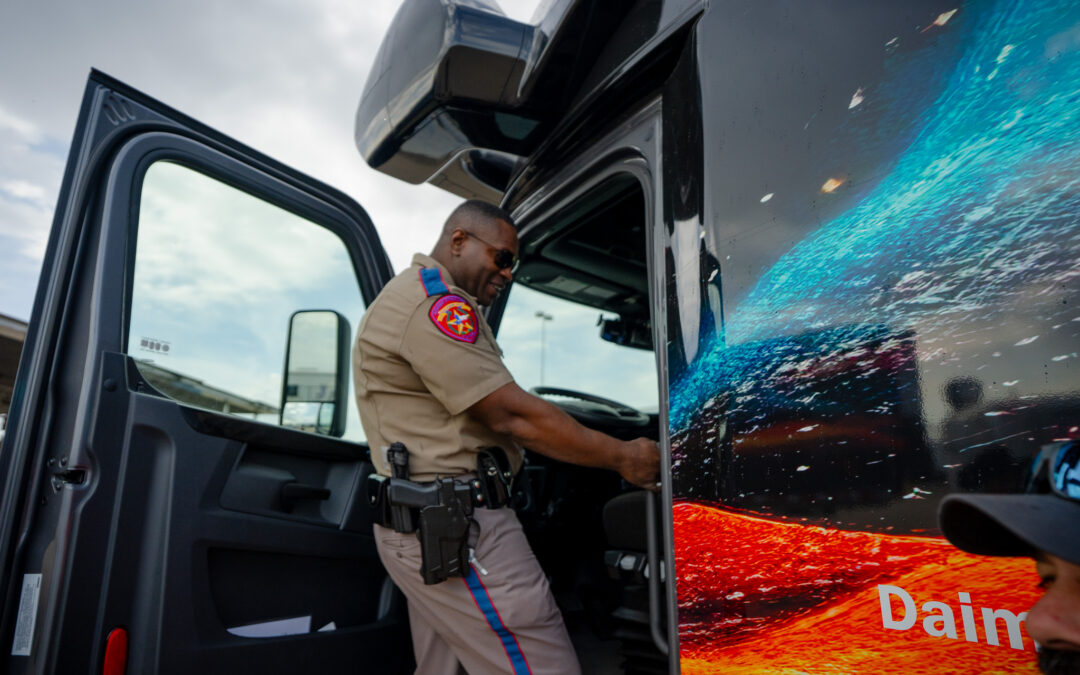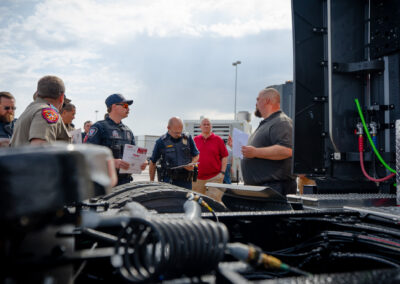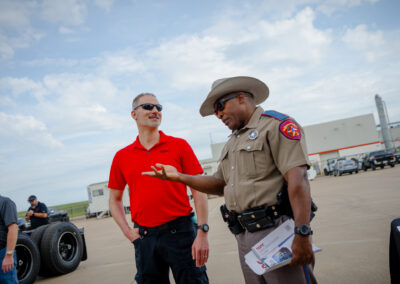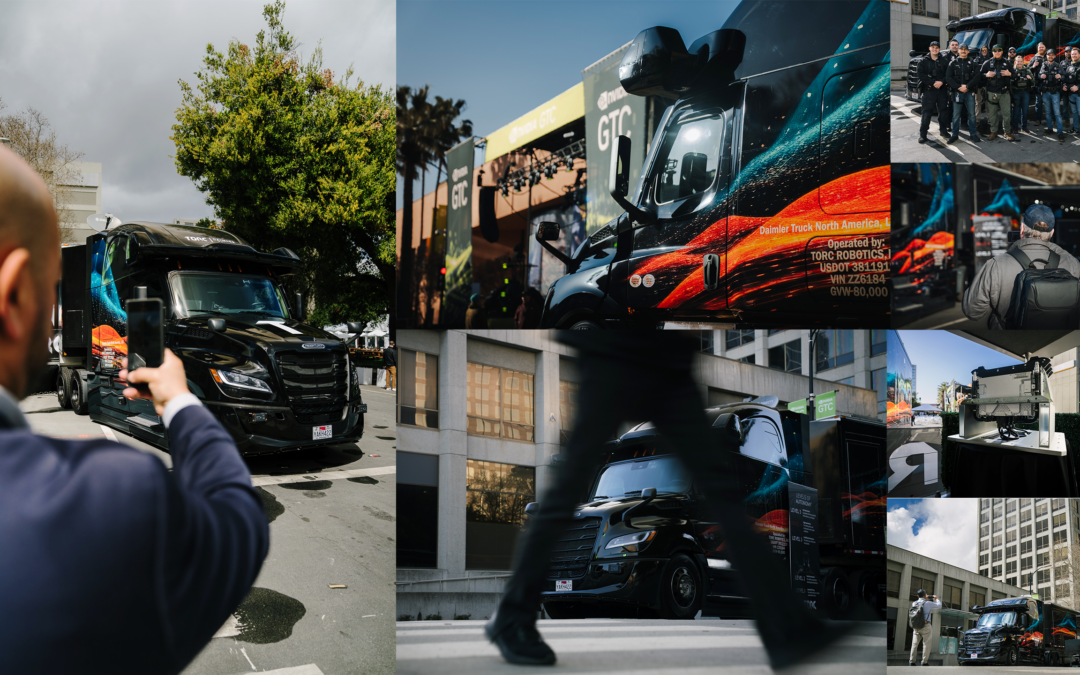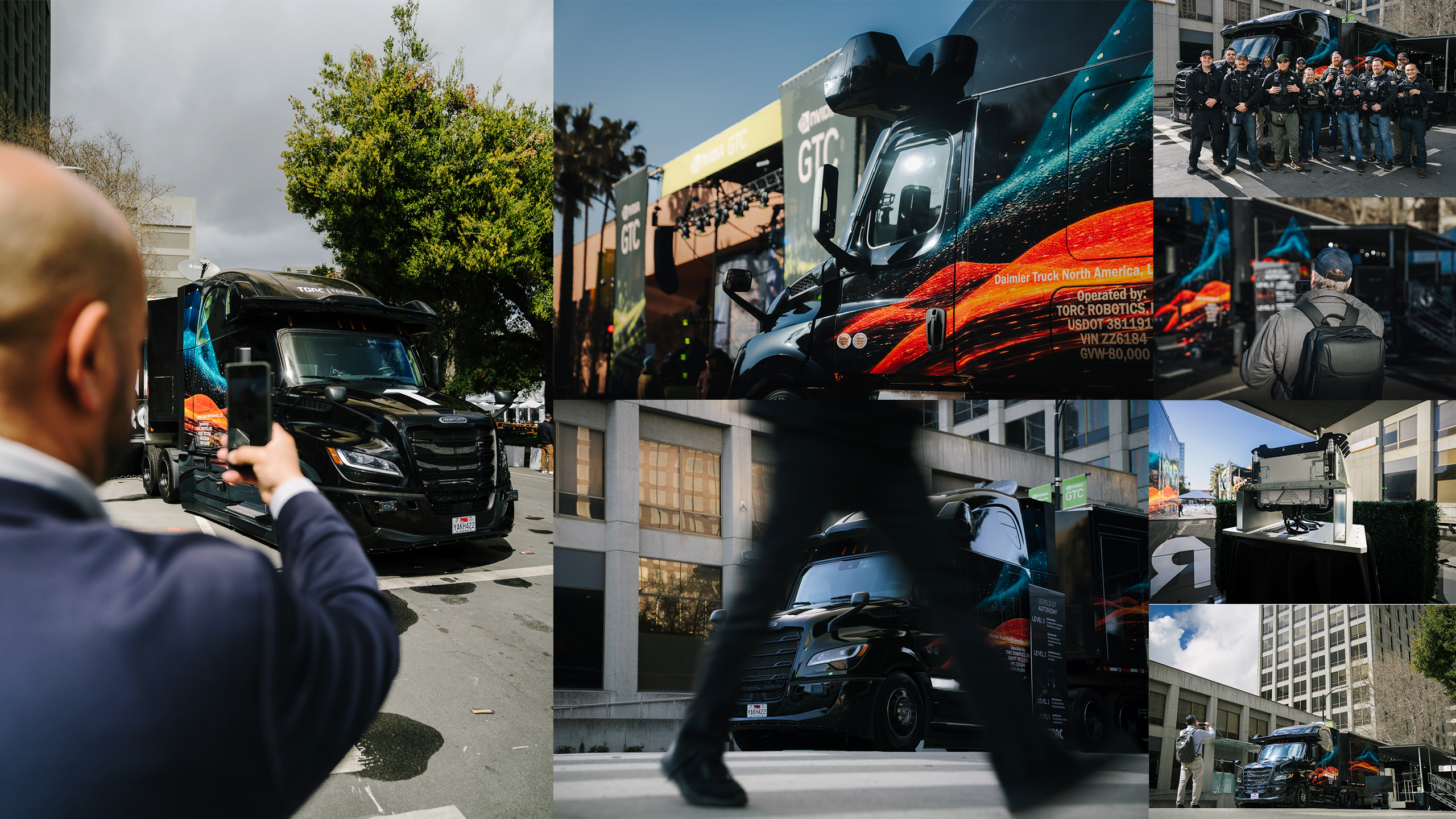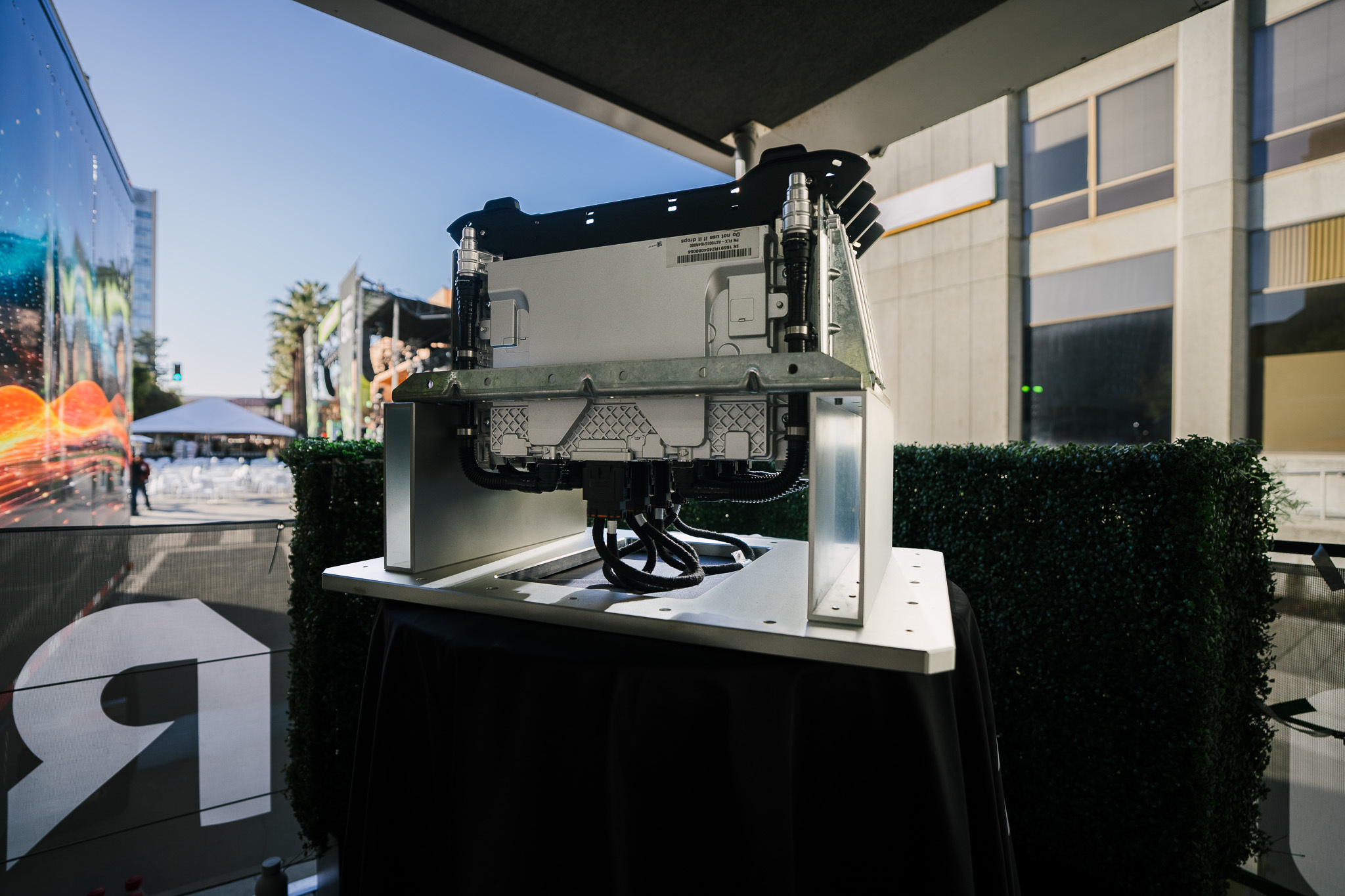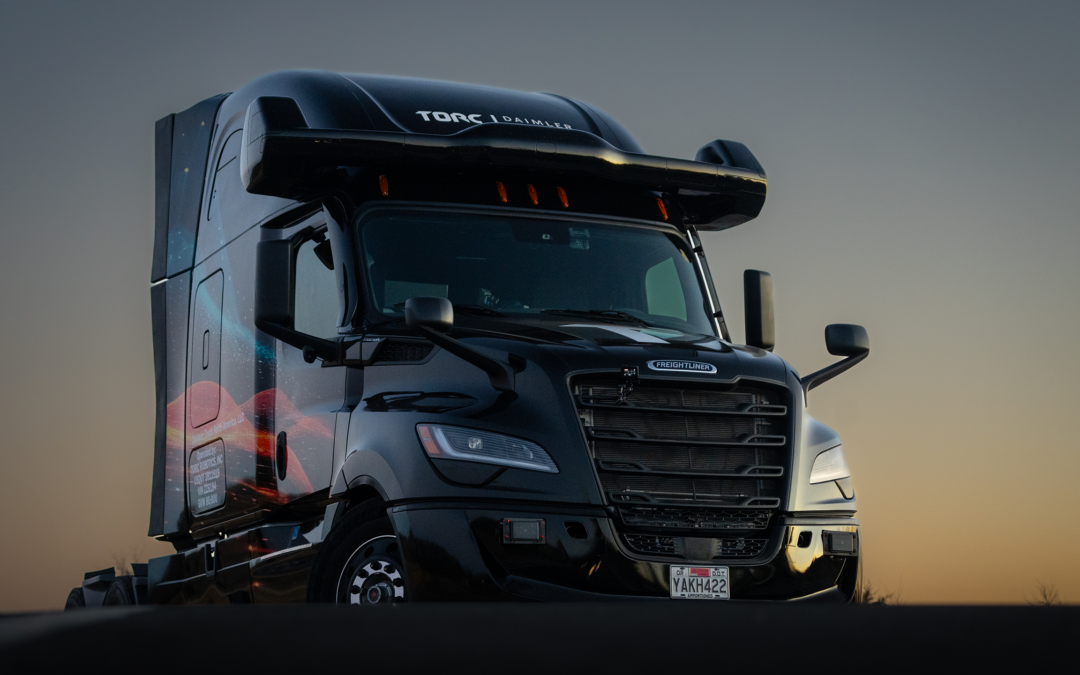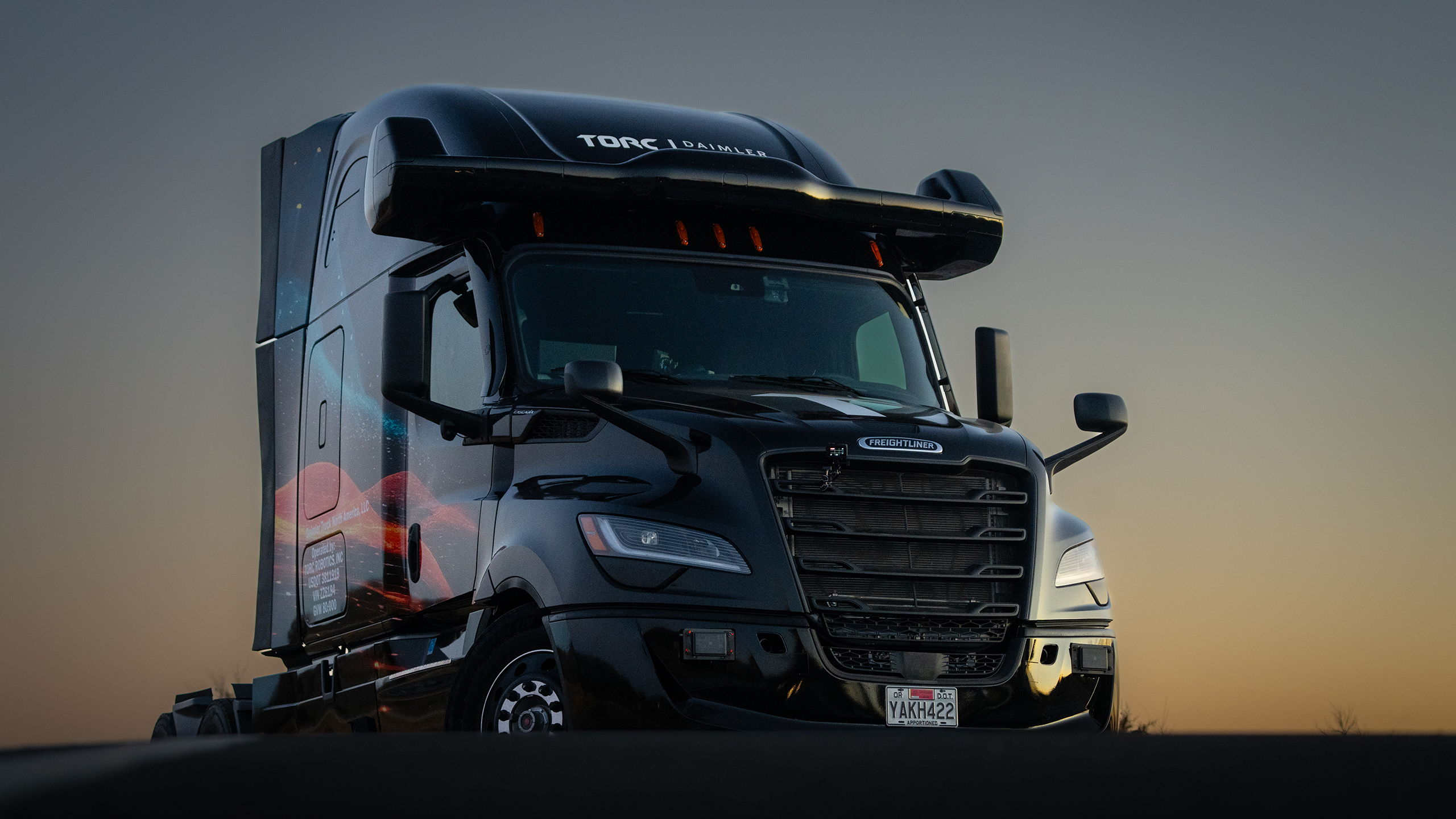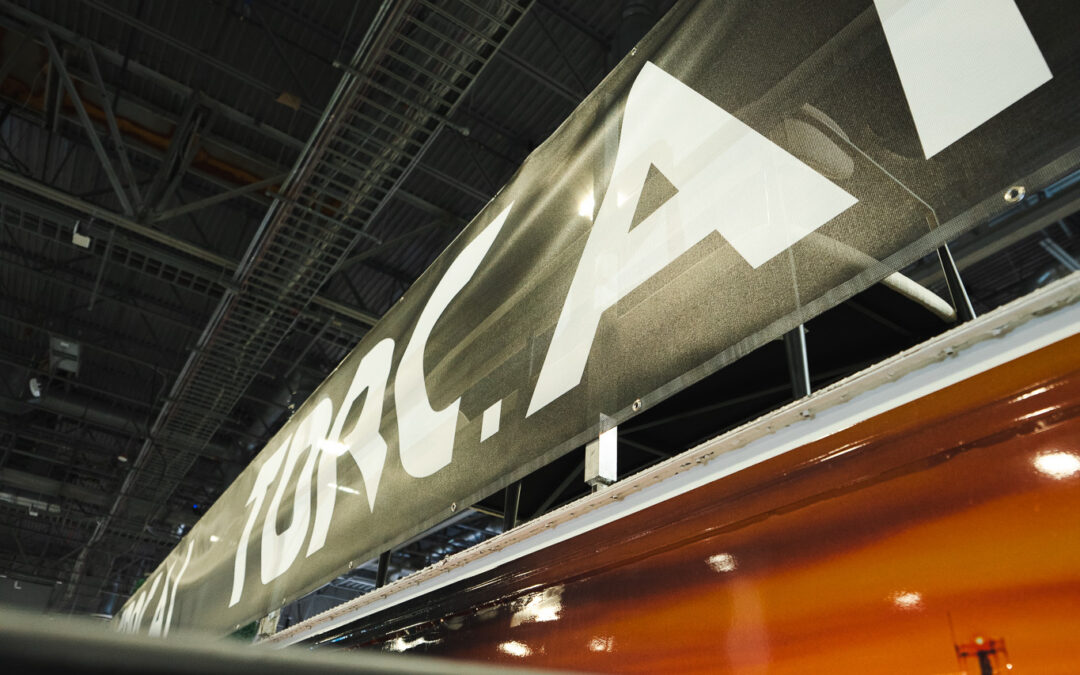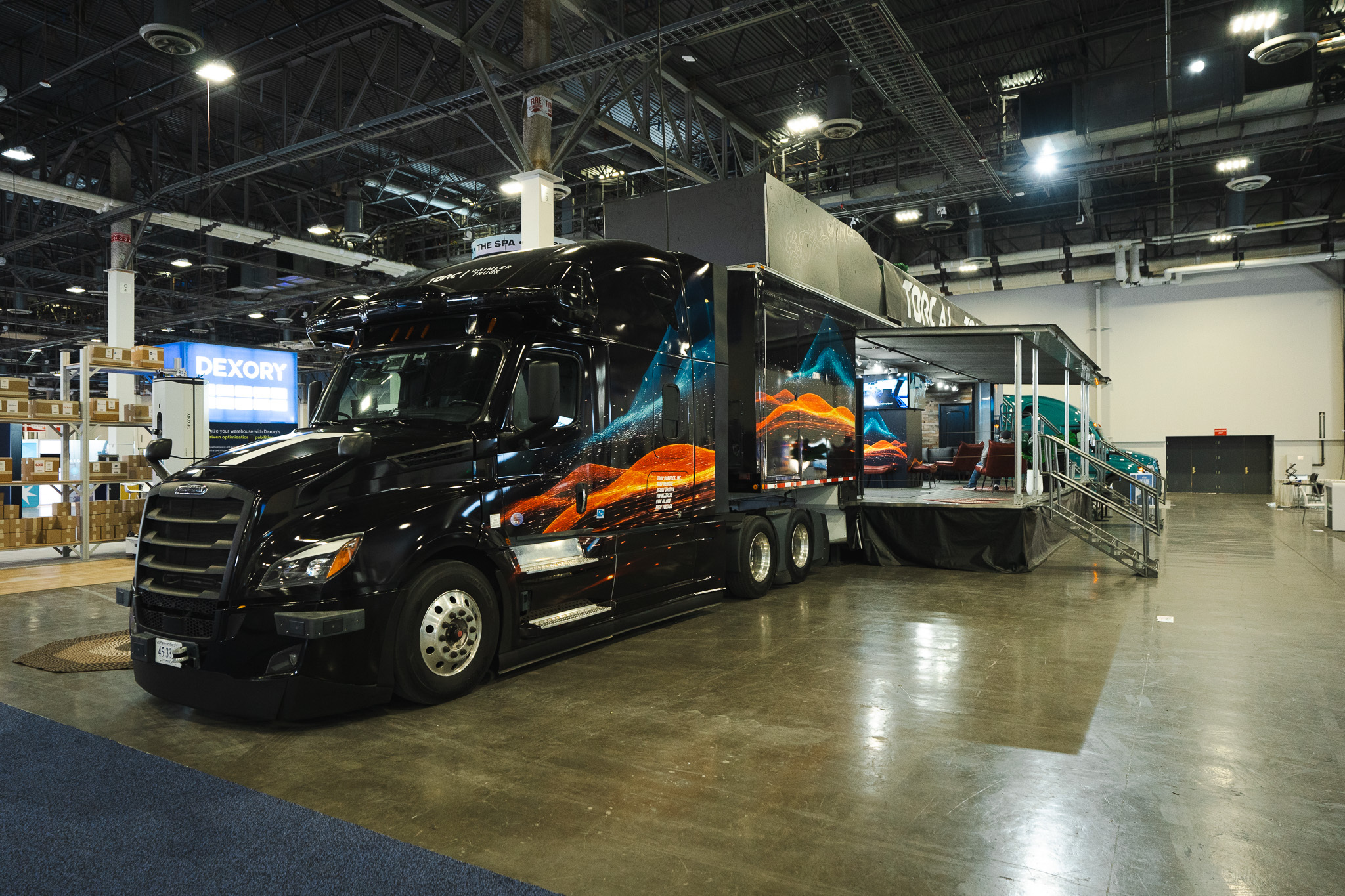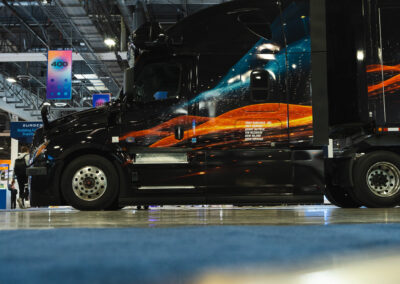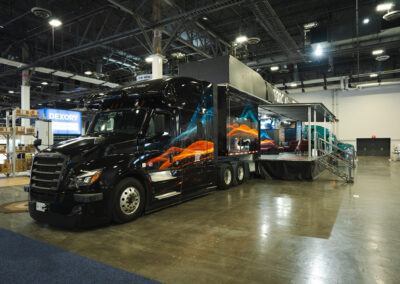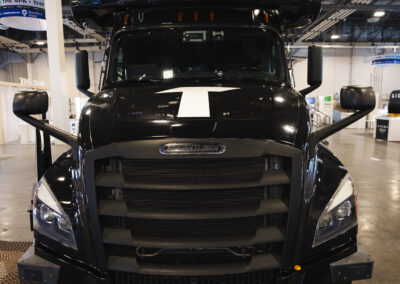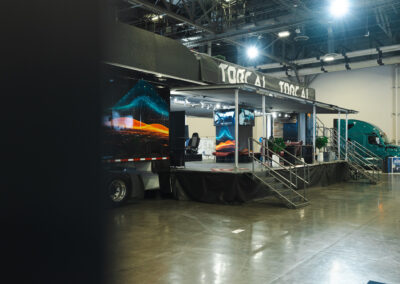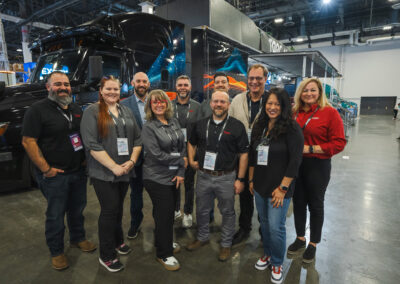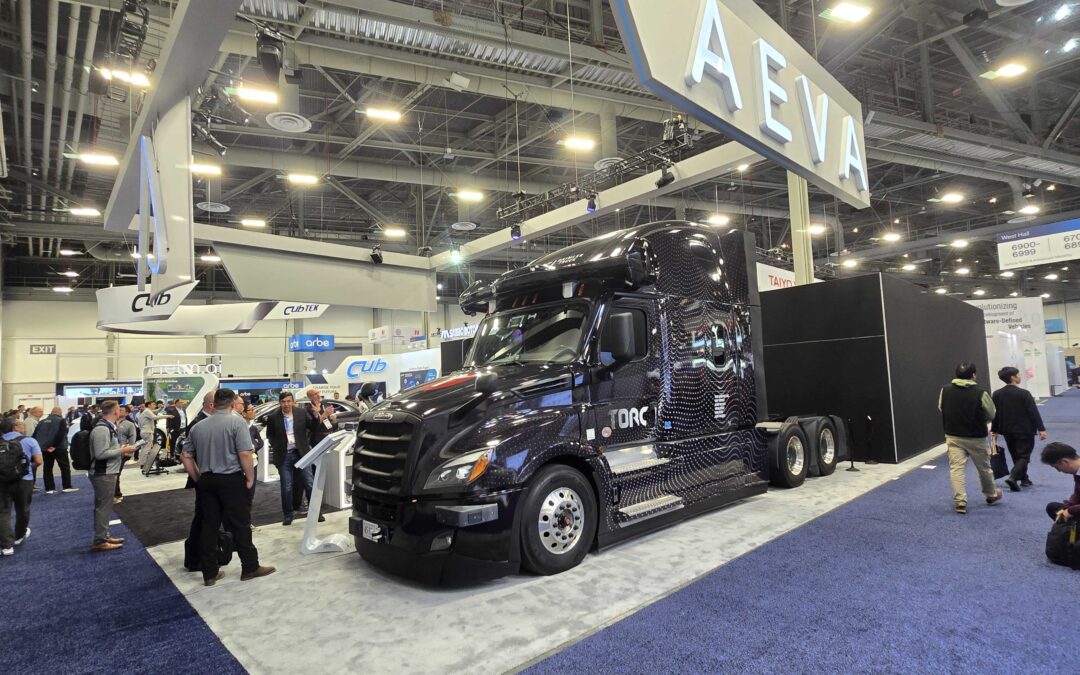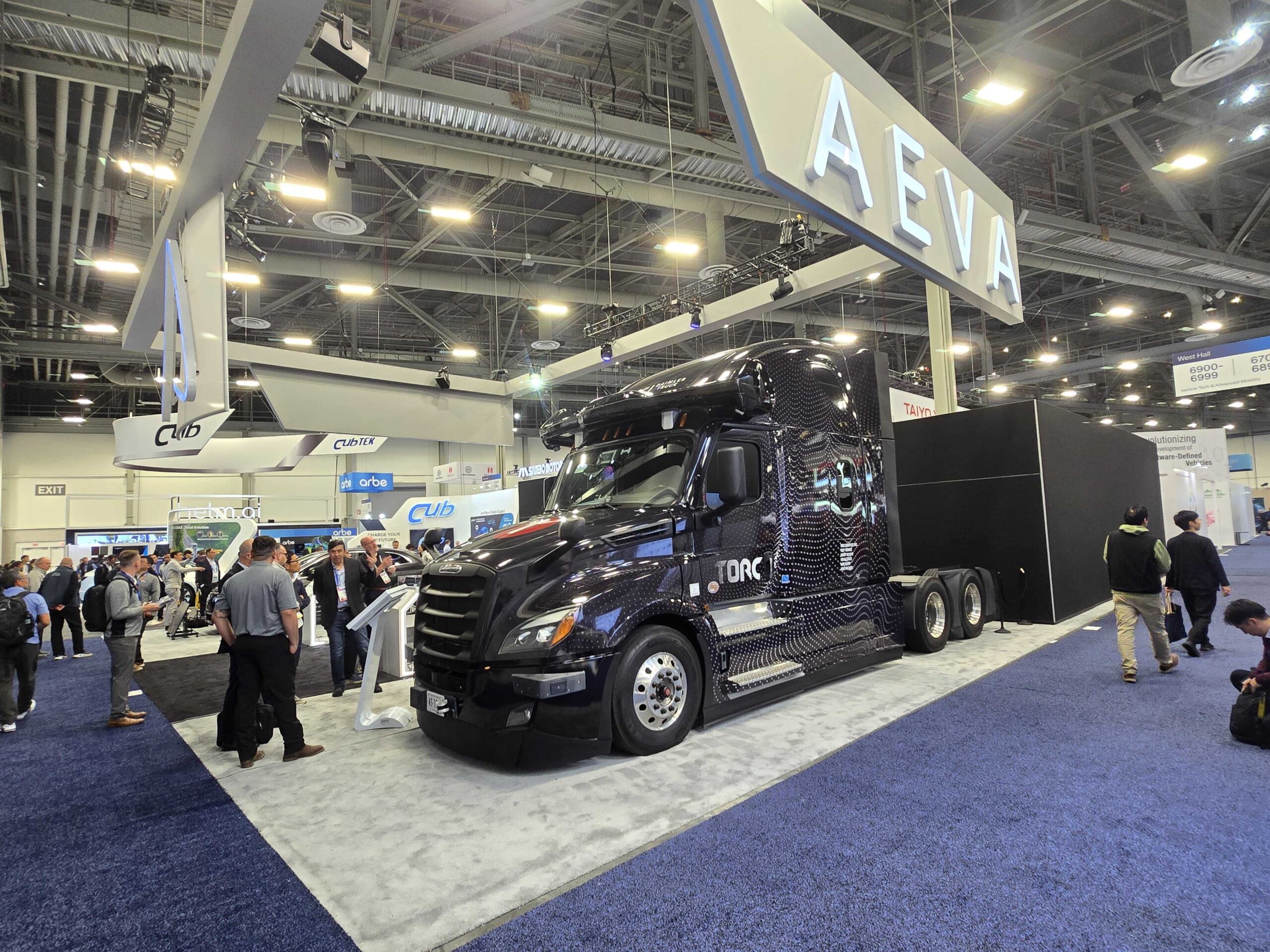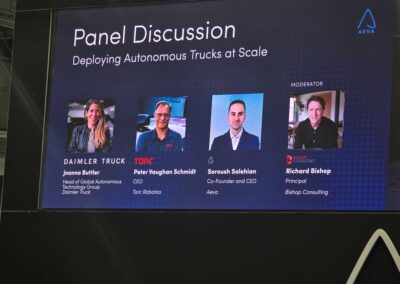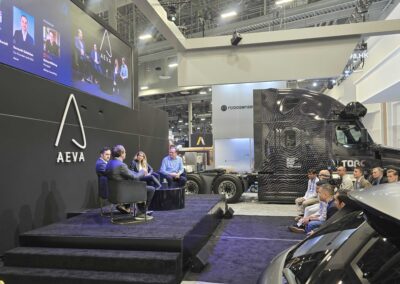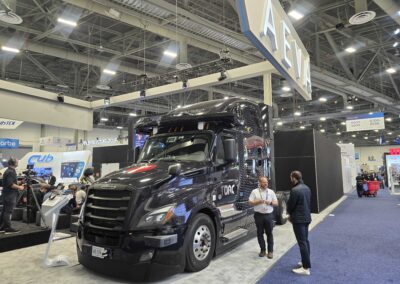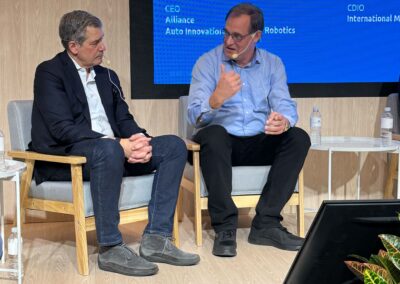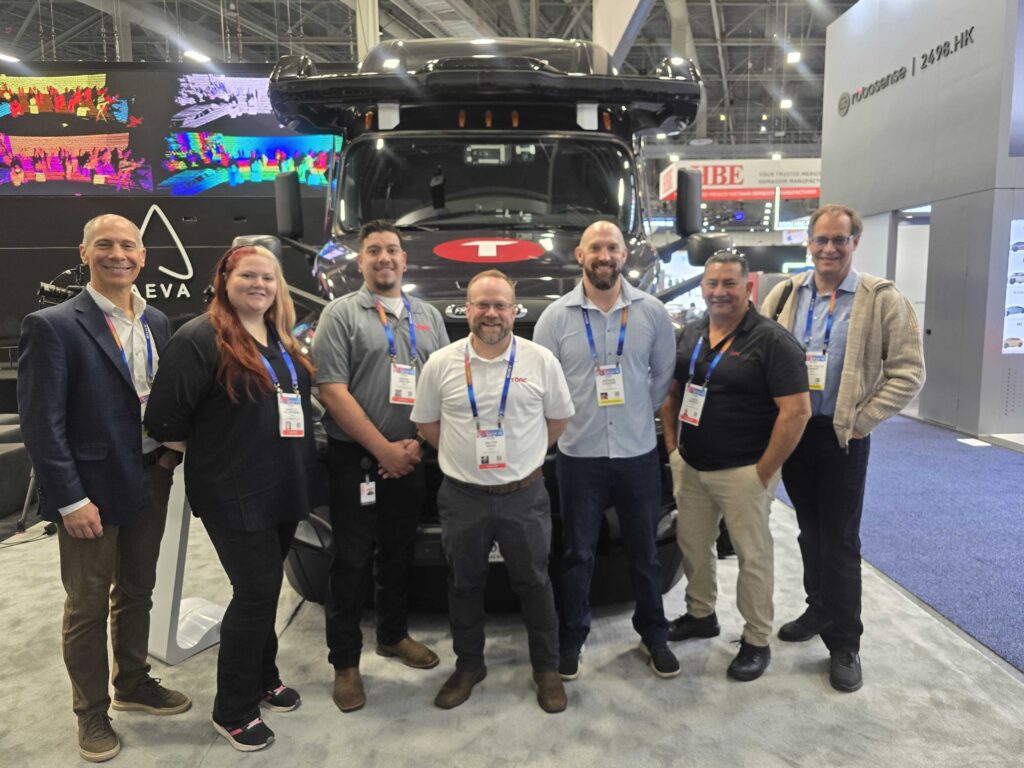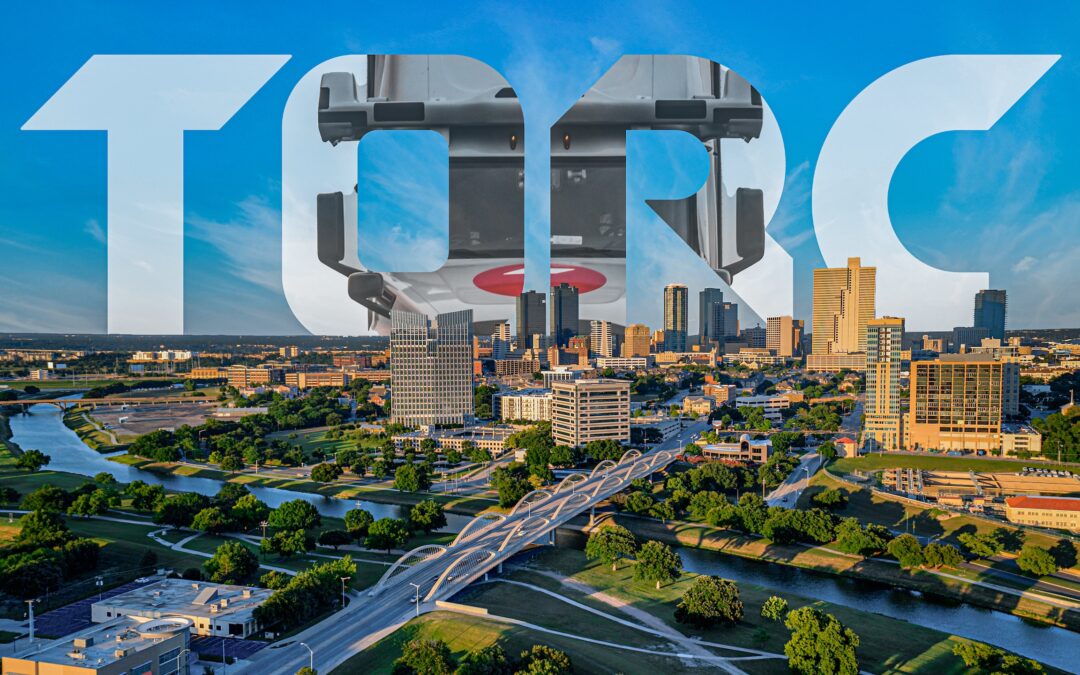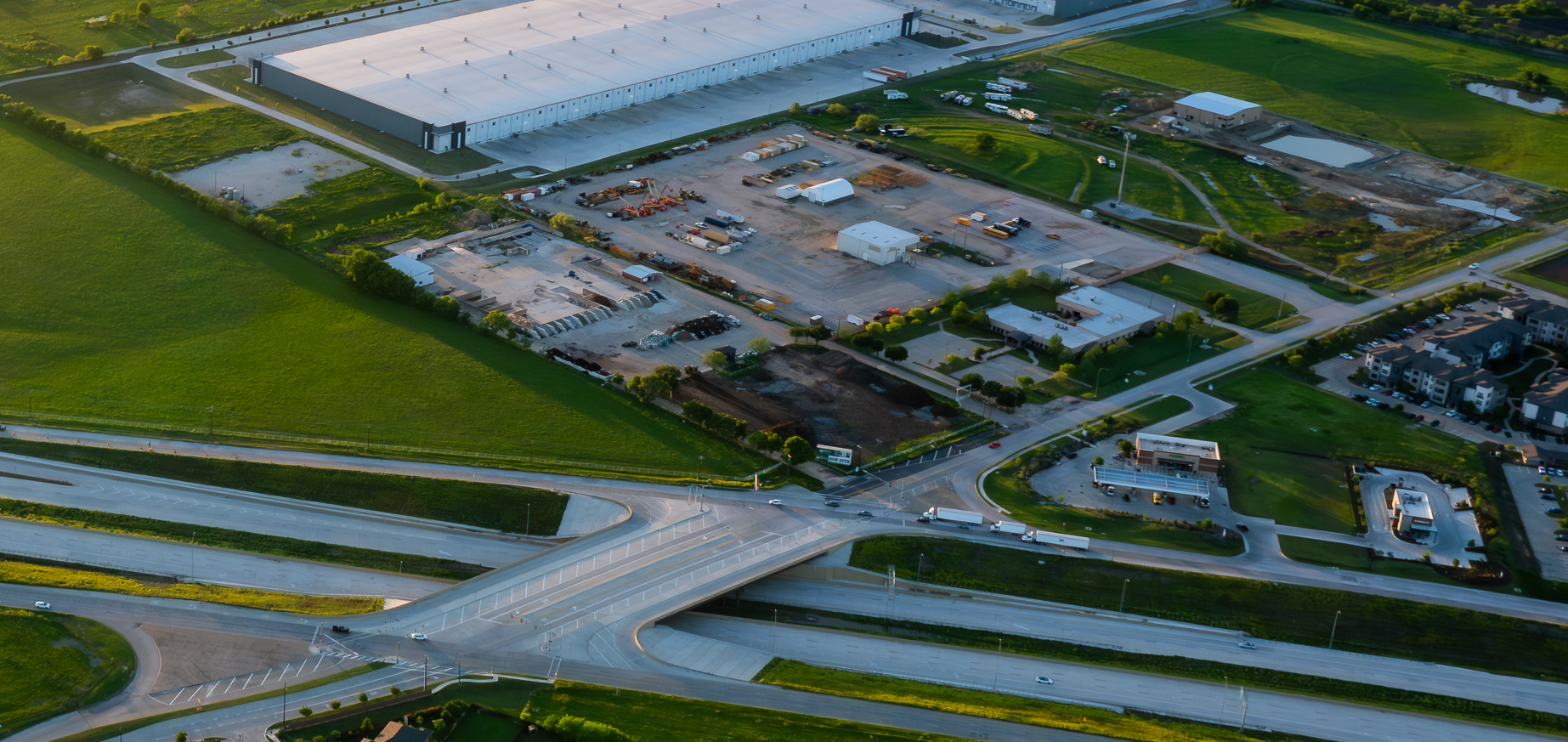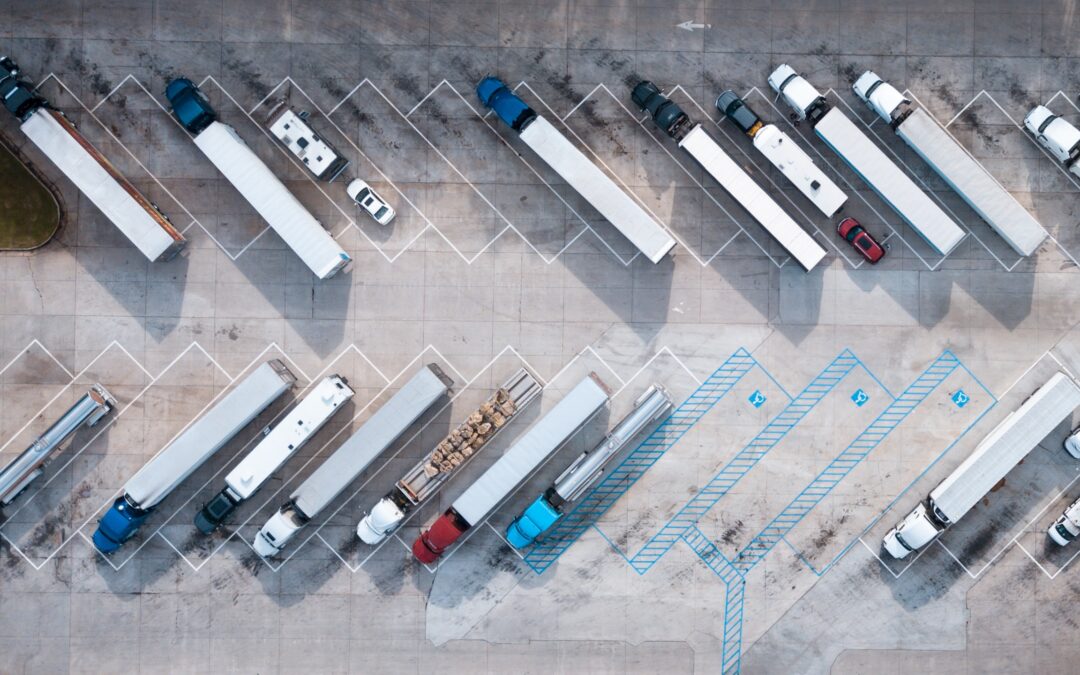The platform leverages NVIDIA DRIVE AGX with Flex’s Jupiter compute platform and manufacturing capabilities to support Torc’s productization and scaled market entry in 2027
BLACKSBURG, Va – March 18, 2025 – Torc, a pioneer in commercializing self-driving class 8 trucks, today announced its collaboration with Flex (NASDAQ: FLEX), a world-class provider of automotive-grade compute platforms, and NVIDIA to develop a scalable physical AI compute system for autonomous trucks.
The physical AI developed at Torc enables self-driving trucks to perceive, understand, and perform complex actions in the real (physical) world. For Torc, physical AI is the core of its software stack that enables trucks to autonomously perceive and navigate their surroundings end-to-end and in real-time using sensors like lidar, radar, and cameras. This allows the truck to make informed decisions about lane changes, braking, and obstacle avoidance to ensure safe and efficient autonomous driving operations and is the first deployment of physical AI for autonomous long-haul trucking at production scale.
Torc collaborated closely with NVIDIA on a multi-chip adaptable architecture that leverages DRIVE AGX using the DRIVE Orin system-on-a-chip (SoC) and DriveOS operating system, and with Flex for their Jupiter compute design platform and advanced manufacturing capabilities. This provides Torc with a scalable high-performance production hardware and software platform based on the autonomous-ready Freightliner Cascadia equipped with advanced technologies and redundant systems designed to support future deployment of autonomous driving capabilities. This platform was successfully validated by Torc’s driverless product acceptance test on a closed course at highway speeds last year.
NVIDIA DRIVE solutions, paired with Flex’s automotive compute design capabilities, adhere to Torc’s stringent size, performance, cost, and reliability requirements while meeting the total cost of ownership targets of its fleet customers who are pursuing non-stop, long-haul driverless trucking integration. This work provides a true Software Defined Vehicle (SDV) functionality: it is adaptable to ever changing operational design domains, including new lanes, new routes, new hubs, new hardware and sensor configurations, new operational rules, new road conditions, and more.
“NVIDIA DRIVE AGX has been industry-proven in full production for automotive real-time applications at the edge. It delivers the high compute performance, low latency, and multi-sensor connectivity needed for Torc’s sophisticated autonomous trucking software, delivering robust perception, prediction, and planning for safe and reliable operation,” said Rishi Dhall, Vice President of Automotive at NVIDIA. “Torc is on a clear path to scalable production for its commercial launch in 2027 and working toward a seamless upgrade to NVIDIA DRIVE AGX with DRIVE Thor.”
“Our collaboration with Torc, Daimler Truck, and NVIDIA illustrates how Flex partners across the full ecosystem to enable mobility companies to launch next-generation technology with greater resilience and speed,” said Mike Thoeny, President, Automotive, Flex. “We appreciate the trust Torc and Daimler Truck have placed in Flex through leveraging our Jupiter compute platform and advanced manufacturing capabilities to deliver autonomous long-haul trucking at scale.”
“Using Daimler Truck’s autonomous Freightliner Cascadias with built-in redundancy, our work with NVIDIA and Flex is already providing a stable and proven foundation for Torc’s autonomous vehicle technology,” said Torc’s CEO, Peter Vaughan Schmidt, “By leveraging NVIDIA’s DRIVE AGX in-vehicle compute and DriveOS, along with Flex’s Jupiter compute platform, we are able to ensure a low-risk, high-confidence path to production that is able to seamlessly transition as NVIDIA’s and Flex’s solutions continue to evolve.”
Along with Flex, Torc will showcase the advanced capabilities of the joint solution on its demo truck at NVIDIA’s upcoming GTC event from March 17-21, 2025, in San Jose, CA.
About Torc
Torc, headquartered in Blacksburg, Virginia, is an independent subsidiary of Daimler Truck AG, a global leader and pioneer in trucking. Founded in 2005 at the birth of the self-driving vehicle revolution, Torc has nearly 20 years of experience in pioneering safety-critical, self-driving applications. Torc offers a complete self-driving vehicle software and integration solution and is currently focusing on commercializing autonomous trucks for long-haul applications in the U.S. In addition to its Blacksburg headquarters and engineering offices in Austin, Texas, and Montreal, Canada, Torc has a fleet operations facility in the Dallas-Fort Worth area in Texas, to support the company’s productization and commercialization efforts, as well as a presence in Ann Arbor, MI, to take advantage of the autonomous and automotive talent base in that region. Torc’s purpose is driving the future of freight with autonomous technology. As the world’s leading autonomous trucking solution, we empower exceptional employees, deliver a focused, hub-to-hub autonomous truck product, and provide our customers with the safest, most reliable, and cost-efficient solution to the market.
